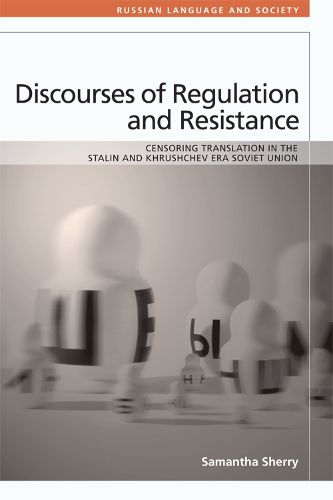Readings Newsletter
Become a Readings Member to make your shopping experience even easier.
Sign in or sign up for free!
You’re not far away from qualifying for FREE standard shipping within Australia
You’ve qualified for FREE standard shipping within Australia
The cart is loading…






This is an in depth study of the censorship of translated literature in the Soviet Union. Although the relationship between the Soviet Union and the West is often understaood as ambivalent and even hostile, Soviet readers were voracious consumers of Western literature in translation. This book shows how the ‘world culture’ presented to Soviet citizens, a vital component of an educated and cultured person’s identity, was distorted and manipulated through censorship. Tracing the development of the censorship of literature translated from English into Russian between the 1930s and 1960s, the book examines how the phenomenon changed after Stalin’s death, examining the means by which censors tried to negotiate between their own ideals and ideas about the West, and the demands made by Soviet ideology, combining censorship and resistance in a complex interplay of practices. It views Soviet censorship through the lens of contemporary Western theories. It features detailed case studies drawn from two major journals, Internatsional'naia literature and Inostrannaia literatura. It exposes the political, ideological and puritanical aspects of censorship practices.It provides in depth analysis of archive material, including translators’ typescript, internal reviews and correspondence between journals and the Party. It reconstructs micro level practices of textual censorship.
$9.00 standard shipping within Australia
FREE standard shipping within Australia for orders over $100.00
Express & International shipping calculated at checkout
This is an in depth study of the censorship of translated literature in the Soviet Union. Although the relationship between the Soviet Union and the West is often understaood as ambivalent and even hostile, Soviet readers were voracious consumers of Western literature in translation. This book shows how the ‘world culture’ presented to Soviet citizens, a vital component of an educated and cultured person’s identity, was distorted and manipulated through censorship. Tracing the development of the censorship of literature translated from English into Russian between the 1930s and 1960s, the book examines how the phenomenon changed after Stalin’s death, examining the means by which censors tried to negotiate between their own ideals and ideas about the West, and the demands made by Soviet ideology, combining censorship and resistance in a complex interplay of practices. It views Soviet censorship through the lens of contemporary Western theories. It features detailed case studies drawn from two major journals, Internatsional'naia literature and Inostrannaia literatura. It exposes the political, ideological and puritanical aspects of censorship practices.It provides in depth analysis of archive material, including translators’ typescript, internal reviews and correspondence between journals and the Party. It reconstructs micro level practices of textual censorship.